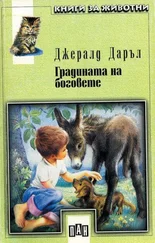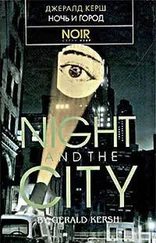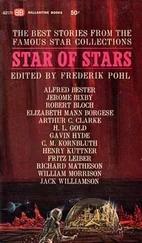Джералд Керш - Nightshade and Damnations
Здесь есть возможность читать онлайн «Джералд Керш - Nightshade and Damnations» весь текст электронной книги совершенно бесплатно (целиком полную версию без сокращений). В некоторых случаях можно слушать аудио, скачать через торрент в формате fb2 и присутствует краткое содержание. Город: Richmond, Год выпуска: 2013, Издательство: Valancourt Books, Жанр: Фантастика и фэнтези, на английском языке. Описание произведения, (предисловие) а так же отзывы посетителей доступны на портале библиотеки ЛибКат.
- Название:Nightshade and Damnations
- Автор:
- Издательство:Valancourt Books
- Жанр:
- Год:2013
- Город:Richmond
- ISBN:нет данных
- Рейтинг книги:3 / 5. Голосов: 1
-
Избранное:Добавить в избранное
- Отзывы:
-
Ваша оценка:
- 60
- 1
- 2
- 3
- 4
- 5
Nightshade and Damnations: краткое содержание, описание и аннотация
Предлагаем к чтению аннотацию, описание, краткое содержание или предисловие (зависит от того, что написал сам автор книги «Nightshade and Damnations»). Если вы не нашли необходимую информацию о книге — напишите в комментариях, мы постараемся отыскать её.
Nightshade and Damnations — читать онлайн бесплатно полную книгу (весь текст) целиком
Ниже представлен текст книги, разбитый по страницам. Система сохранения места последней прочитанной страницы, позволяет с удобством читать онлайн бесплатно книгу «Nightshade and Damnations», без необходимости каждый раз заново искать на чём Вы остановились. Поставьте закладку, и сможете в любой момент перейти на страницу, на которой закончили чтение.
Интервал:
Закладка:
Although the monster understood neither Hebrew, Greek, Latin, Italian nor French, it was obvious that it was a human being, or something remarkably like one. This was evident in its manner of wrinkling its forehead, narrowing its eyes, and demonstrating that it was capable of understanding—or of wanting to understand, which is the same thing. But it could not speak; it could only cry out incoherently and it was obviously greatly distressed. The Reverend Arthur Titty said: “Oafs, ignorant louts! This is no sea monster, you fools, no lusus naturae , but an unfortunate shipwrecked mariner.”
According to the pamphlet, Hodge said: “Your Reverence, begging your Reverence’s pardon, how can that be, since for the past fortnight there has been no breath of wind and no foreign vessel in these parts? If this be an unfortunate shipwrecked mariner, where is the wreck of his ship, and where was it wrecked? I humbly ask your Reverence how he appeared as you might say out of a bubble without warning on the face of the water, floating. And if your Honor will take the trouble to observe this unhappy creature’s skin your Reverence will see that it shows no signs of having been immersed for any considerable period in the ocean.”
I do not imagine for a moment that this is what Hodge really said: he probably muttered the substance of the argument in the form of an angry protest emphasized by a bitten-off oath or two. However, the Reverend Arthur Titty perceived that what the fisherman said was “not without some show of reason” and said that he proposed to take the monster to his house for examination.
Hodge protested vigorously. It was his monster, he said, because he had caught it in the open sea with his own hands, in his own boat, and parson or no parson, if Titty were the Archbishop himself, an Englishman had his rights. After some altercation, in the course of which the monster fainted, the Reverend Arthur Titty gave Hodge a silver crown piece for the loan of the monster for philosophical observation. They poured a few buckets of sea water over the monster which came back to consciousness with a tremulous sigh. This was regarded as positive proof of its watery origin. Then it was carried to Titty’s house on a hurdle.
It rejected salt water as a drink, preferring fresh water or wine, and ate cooked food, expressing, with unmistakable grimaces, a distaste for raw fish and meat. It was put to bed on a heap of clean straw and covered with a blanket which was kept moistened with sea water. Soon the monster of Brighthelmstone revived and appeared desirous of walking. It could even make sounds reminiscent of human speech.
The Reverend Arthur Titty covered its nakedness under a pair of his old breeches and one of his old shirts . . . as if it had not been grotesque-looking enough before.
He weighed it, measured it, and bled it to discover whether it was thick or thin-blooded, cold or hot-blooded. According to Titty’s fussy little account the monster was about five feet one and three-quarter inches tall. It weighed exactly one hundred and nineteen pounds, and walked upright. It possessed unbelievable strength and superhuman agility. On one occasion the Reverend Arthur Titty took it out for a walk on the end of a leather leash. The local blacksmith, one of Hodge’s boon companions, who was notorious for his gigantic muscular power and bad temper—he was later to achieve nationwide fame as Clifford, who broke the arm of the champion wrestler of Yorkshire—accosted the Reverend Arthur Titty outside his smithy and said: “Ah, so that’s Hodge’s catch as you stole from him. Let me feel of it to see if it be real,” and he pinched the monster’s shoulder very cruelly with one of his great hands—hands that could snap horseshoes and twist iron bars into spirals. The inevitable crowd of children and gaping villagers witnessed the event. The monster picked up the two-hundred-pound blacksmith and threw him into a heap of scrap iron three yards away. For an anxious second or two Titty thought that the monster was going to run amok, for its entire countenance changed; the nostrils quivered, the eyes shone with fierce intelligence, and from its open mouth there came a weird cry. Then the creature relapsed into heavy dejection and let itself be led home quietly, while the astonished blacksmith, bruised and bleeding, limped back to his anvil with the shocked air of a man who has seen the impossible come to pass.
Yet, the monster was an extremely sick monster. It ate little, sometimes listlessly chewing the same mouthful for fifteen minutes. It liked to squat on its haunches and stare unblinkingly at the sea. It was assumed that it was homesick for its native element, and so it was soused at intervals with buckets of brine and given a large tub of sea water to sleep in if it so desired. A learned doctor of medicine came all the way from Dover to examine it and pronounced it human; unquestionably an air-breathing mammal. But so were whales and crocodiles breathers of air that lived in the water.
Hodge, alternately threatening and whimpering, claimed his property. The Reverend Arthur Titty called in his lawyer, who so bewildered the unfortunate fisherman with Latin quotations, legal jargon, dark hints and long words that, cursing and growling, he scrawled a cross in lieu of a signature at the foot of a document in which he agreed to relinquish all claim on the monster in consideration of the sum of seven guineas, payable on the spot. Seven guineas was a great deal of money for a fisherman in those days. Hodge had never seen so many gold pieces in a heap, and had never owned one. Then a traveling showman visited the Reverend Arthur Titty and offered him twenty-five guineas for the monster, which Titty refused. The showman spoke of the matter in the Smack, and Hodge, who had been drunk for a week, behaved “like one demented,” as Titty wrote in a contemptuous footnote. He made a thorough nuisance of himself, demanding the balance of the twenty-five guineas which were his by rights, was arrested and fined for riotous conduct. Then he was put in the stocks as an incorrigible drunkard, and the wicked little urchins of Brighthelmstone threw fish-guts at him.
Let out of the stocks with a severe reprimand, smelling horribly of dead fish, Hodge went to the Smack and ordered a quart of strong ale, which came in a heavy can. Rodgers, to whom Hodge had given only twelve shillings, came in for his modest morning draft, and told Hodge that he was nothing better than a damned rogue. He claimed half of the seven golden guineas. Hodge, having drunk his quart, struck Rodgers with the can, and broke his skull; for which he was hanged not long afterwards.
The Brighthelmstone monster was an unlucky monster.
The Reverend Arthur Titty also suffered. After the killing of Rodgers and the hanging of Hodge the fishermen began to hate him. Heavy stones were thrown against his shutters at night. Someone set fire to one of his haystacks. This must have given Titty something to think about, for rick-burning was a hanging matter, and one may as well hang for a parson as for a haystack. He made up his mind to go to London and live in politer society. So he was uprooted by the monster. The fishermen hated the monster too. They regarded it as a sort of devil. But the monster did not care. It was languishing, dying of a mysterious sickness. Curious sores had appeared at various points on the monster’s body—they began as little white bumps such as one gets from stinging-nettles, and slowly opened and would not close. The looseness of the skin, now, lent the dragons and fishes a disgustingly lifelike look: as the monster breathed, they writhed. A veterinary surgeon poured melted pitch on the sores. The Reverend Titty kept it well soaked in sea water and locked it in a room, because it had shown signs of wanting to escape.
Читать дальшеИнтервал:
Закладка:
Похожие книги на «Nightshade and Damnations»
Представляем Вашему вниманию похожие книги на «Nightshade and Damnations» списком для выбора. Мы отобрали схожую по названию и смыслу литературу в надежде предоставить читателям больше вариантов отыскать новые, интересные, ещё непрочитанные произведения.
Обсуждение, отзывы о книге «Nightshade and Damnations» и просто собственные мнения читателей. Оставьте ваши комментарии, напишите, что Вы думаете о произведении, его смысле или главных героях. Укажите что конкретно понравилось, а что нет, и почему Вы так считаете.






